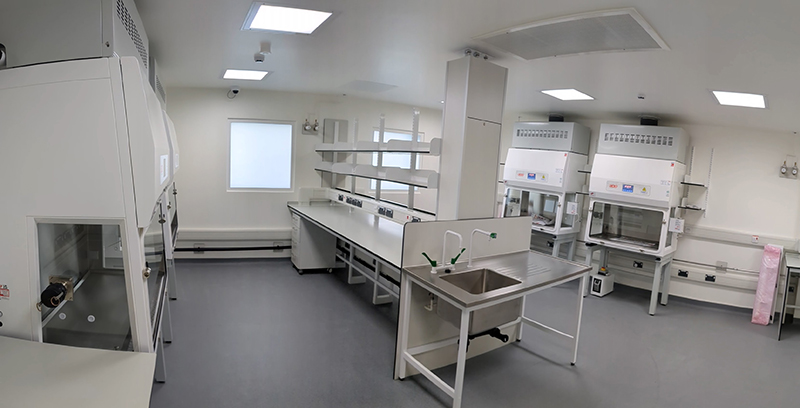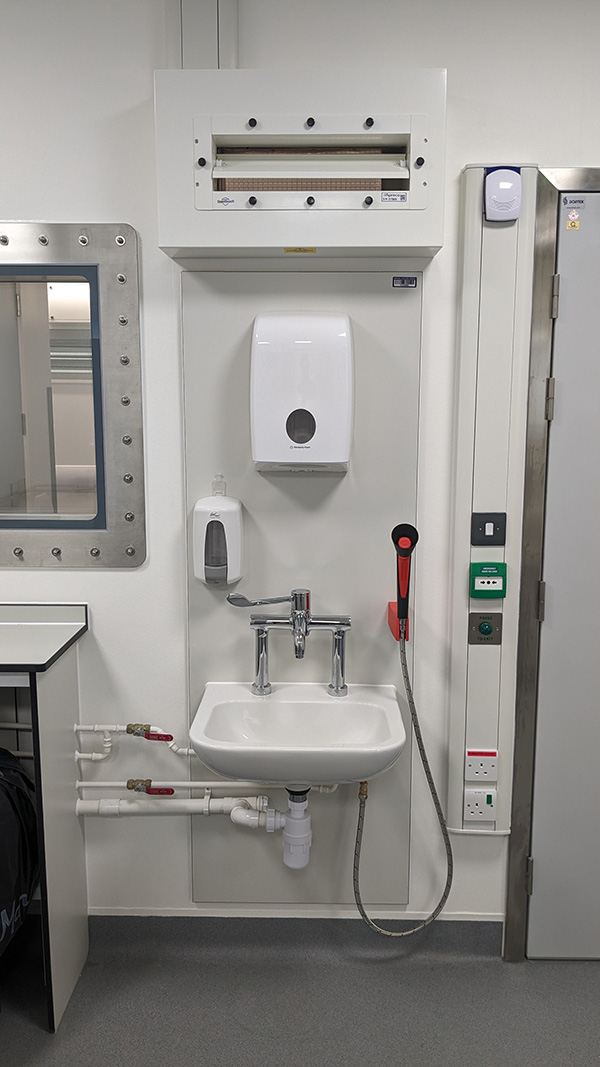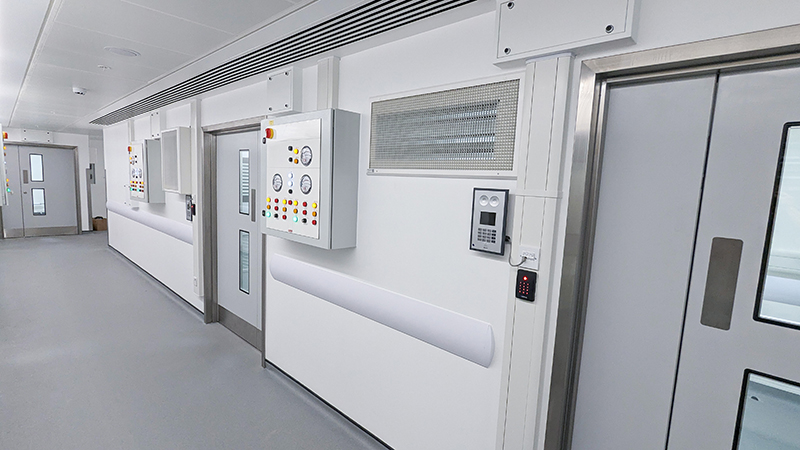Few companies can build to the exceptional requirements for the research facilities that form part of this project. Medical Air Technology (MAT), however, specialises in exactly this high level of engineering expertise, and was brought in to provide the containment laboratories and cleanrooms at the heart of the new dedicated facility.
The application of “excellent science”
The Department of Infectious Disease hosts investigators studying all aspects of infectious disease, with a mission to “apply excellent science and develop new approaches to address the unmet clinical needs for the control of infectious disease, both here in the UK and internationally.” To achieve these ambitious aims, it needs to offer facilities of the highest standard, able to host research that may involve infectious pathogens.
MAT has completed several successful projects at Imperial and was chosen to work with main contractor Walter Lilly to design and build the containment laboratories and cleanrooms contained within the refurbishment of four floors in the Sir Alexander Fleming Building on Imperial’s South Kensington Campus.

The new laboratories
The reorganised and refurbished area brings together three Department of Infectious Disease user sections into the same space: Virology, Immunology of Infection, and Paediatric Infectious Disease. At its heart are the laboratories that will allow safe handling of infectious pathogens, as well as cleanrooms and ancillary spaces.
MAT had full design and build responsibility for a large suite containing eight CL3 laboratories, one CL2 laboratory, two ISO class 7 cleanrooms, a freezer room, and an autoclave room. The new suite replaced existing general laboratories, which were completely stripped out by the main contractor, leaving MAT’s engineers with a totally empty space in which to start work.
The term ‘Containment Level’ or ‘CL’ refers to the biocontainment precautions required to isolate hazardous biological agents in an enclosed laboratory facility. The CL3 laboratories MAT designed for this project comply with the stringent Home Office physical security requirements for handling Schedule 5 pathogens, toxins, and relevant genetic materials.
Like all CL3 laboratories, the new laboratories are gas-tight, leak-proof rooms that use specialised airflow design to ensure biocontainment by operating under a negative pressure air regime. In contrast, the ISO class 7 cleanrooms are designed to provide a positive air pressure cascade to avoid contaminant entering the labs.

CL3 laboratories and safety cabinets may require fumigation to sterilise them so they can be safely maintained and tested or decontaminated if there is a spillage of biological materials. This means that special chemical-resistant material and finishes are required inside the laboratories.
In this case, the laboratories were coated internally with a specialist, chemical-resistant, flexible finish with an impermeable fibreglass layer to provide durability and resilience and had well-sealed windows to the exterior. In addition, all MEP services were penetrated through using Roxtec mechanical seals.
Project challenges
Building within an existing space always brings challenges. The main contractor had stripped out the existing general laboratory that was to be replaced by the new suite, so MAT was able to start with a completely blank room. However, as is so often the case with refurbishment projects, there were space constraints that complicated plant and distribution services, as everything that could not be handled by the external goods hoist had to be craned into position onto the plant deck. Due to limited service road access, the crane lift was a considerable reach from the campus central clock tower courtyard. Out of hours lifting took place over two weekends.
Fortunately, MAT is no stranger to problems of this sort and, working closely with the other contractors and the university’s Property Division, work was able to continue and another successful project was completed and handed over.

A specialist contractor
MAT designs, manufactures, and installs bespoke critical ventilation systems and turnkey project solutions for new build and refurbishment healthcare and life science projects. The team has extensive experience of working in live environments and fully understands the challenges around delivering a project within an operational scenario.
In addition, the company’s facilities management division, MAT FM, provides a range of competitively priced and highly effective service and maintenance packages for all core products and turnkey solutions offered by MAT or other suppliers, ensuring that equipment is maintained, serviced and validated correctly for optimum performance and efficiency.
